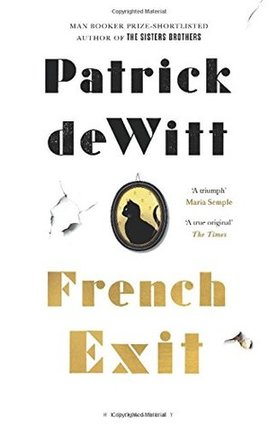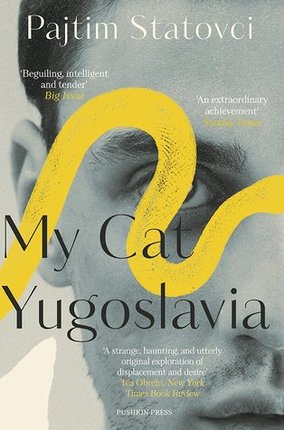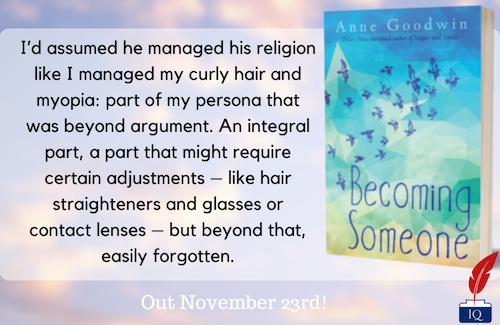French Exit by Patrick de Witt
His emotionally-stunted characters are American, so a different kind of aristocrat, I suppose. But widowed Frances Price and her thirty-five-year-old son Malcolm are rich enough to never have to cook a meal of themselves, let alone go out to work. Or rather they have been. When the bank reclaims their Manhattan apartment, they up sticks to Paris where Frances’s only friend Joan has a place going spare. Their cat, named Small Frank after the deceased husband and father, goes along too.
This cat seems remarkably uncatlike until, about a hundred pages in, he becomes the most interesting character of the three. But he disappears again while mother and son, despite their indolence and previous antisocial personalities, gather around them a depressed psychic, a shy private detective and a lonely expat, to name but three. When Joan, Malcolm’s ex-fiancée Susan and Susan’s current fiancé Tom arrive from America what else can they do but get pissed and entertain each other with stories from childhoods thick with emotional neglect?
I was really looking forward to French Exit, the author’s fourth novel, after reading his Wild West satire, The Sisters Brothers, for my book group last year. I wish I had taken the time to review it so I could say why that tragicomic tale of contract killers with attachment issues worked for me when French Exit didn’t. Perhaps in the age of Trump its take on high society seems a tad old-fashioned. Or maybe not, given Frances’ narcissism? But I appreciated the opportunity to read it courtesy of Bloomsbury books.
My Cat Yugoslavia by Pajtim Statovci
translated by David Hackston
But it wouldn’t be much of a story if Emine’s life turned out as rosy as her dreams. A violent rage lurks behind Bajram’s smile. And it’s not only on the domestic front that things are turbulent. On the day of their marriage, Tito’s death lifts the lid on simmering resentments between the disparate nations than made up Yugoslavia. As Kosovan Albanians, Bajram’s young family are heavily repressed by the Serbs.
Beginning a new life in Finland, the children adapt more quickly to the language and culture, as is often the case with immigrants, despite the bullying and racism they experience at school. But with Bajram’s escalating violence, nowhere feels particularly safe. The youngest, Bekim suffers dreadful nightmares involving a snake, his screams disturbing everyone’s sleep.
First they consult a psychologist who, over several months, explores the little boy’s attitude to various animals, but without effect. Next, Bajram calls on an imam to conduct an exorcism, but the nightmares continue. Finally he thrashes his son, and the nightmares abruptly stop; presumably by burying the disturbance deeper in his psyche.
Indeed, when the reader is first introduced to Bekim, he’s a young man adrift, struggling with the social side of university and arranging casual sexual encounters online. Apparently on a whim, he buys a boa constrictor. Then, one night in a gay bar, he’s entranced by a talking cat whom he invites to move in with him, although it’s hard to tell whether this is due to self-loathing or love. Certainly the cat is not a pleasant character, voicing multiple prejudices and leaving Bekim to clean up after him.
On a trip back to his roots in Kosovo, Bekim meets another snake and another cat, this one more ordinary but with potential connections to his Finnish feline friend. Emine, his mother, also gets a cat as a pet towards the end of the novel, but I wasn’t sure if I was meant to find any particular meaning in that.
Still trying to follow the narrative arc, it wasn’t until ten pages before the end, when Bekim says, in relation to a novel he lent to his new lover, “endings in stories are never as interesting as the details of the beginning”, that I realised that the theme is revealed in the process of reading as much as in the story itself. So for a novel about migration and dislocation, I should be grateful Pajtim Statovci’s debut isn’t quite as disorientating as some. Thanks to Pushkin Press for my review copy. For another novel about migration from the former Yugoslavia, see my review of Ukelele Jam.
No talking cats in my forthcoming anthology Becoming Someone, but there are a few stories about migration, as well as at least one about a mother and son, from which this quote is extracted. Sign up to my email newsletter before November 19th for a chance to win a signed paperback copy.
























 RSS Feed
RSS Feed





















